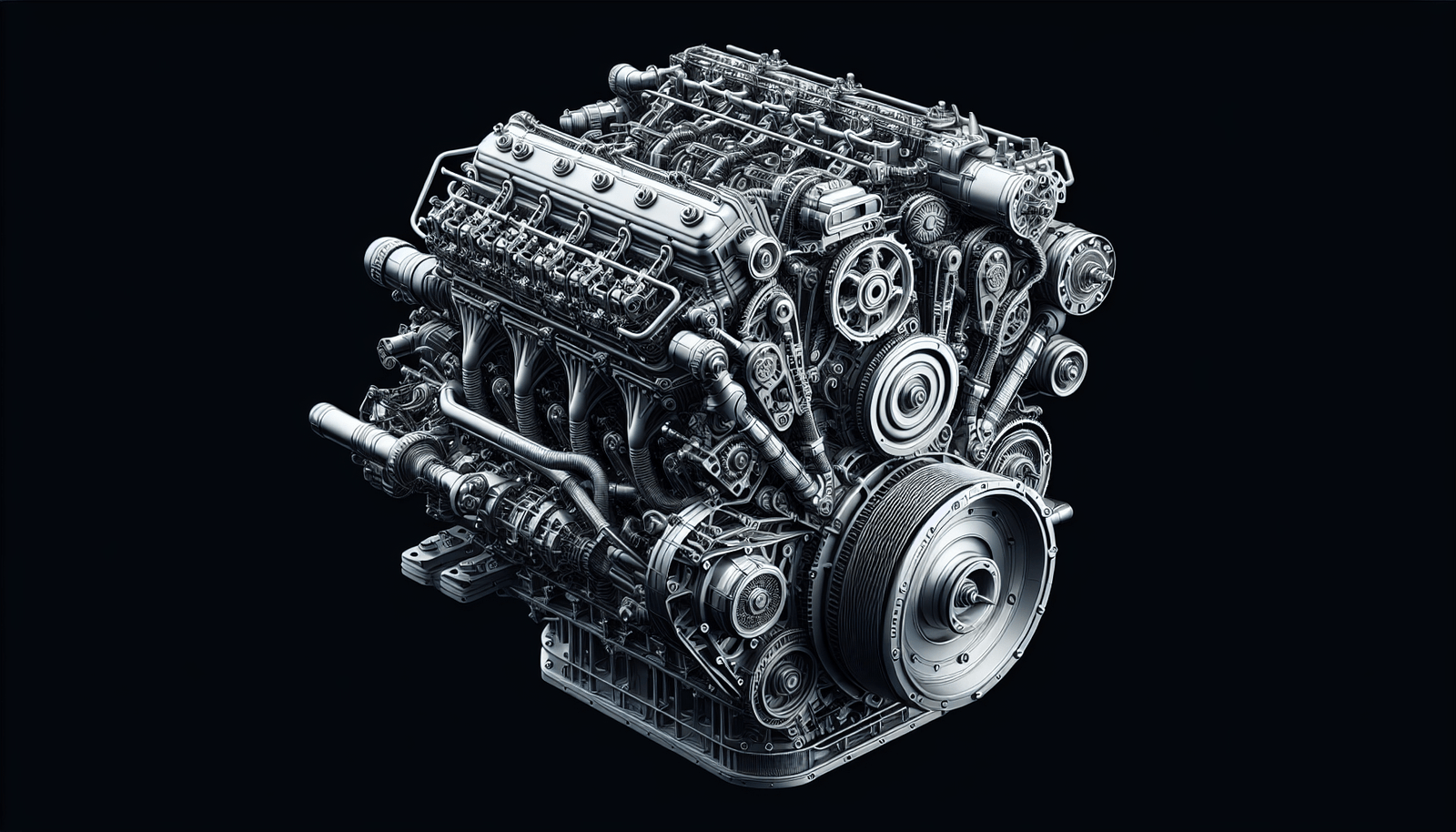Understanding boat engine warranties can be a challenging task, and that’s where this ultimate guide comes in handy. It eases out the complexities associated with different types of warranties, their terms, conditions, and most importantly, how they safeguard your precious investment. This guide features insightful information tailored to assist you in comprehending the nitty-gritty of boat engine warranties and ensure that you’re making educated decisions when it comes to your aquatic vessel. So, gear up to arm yourself with vital knowledge and find that peace of mind next time you hit the open water.
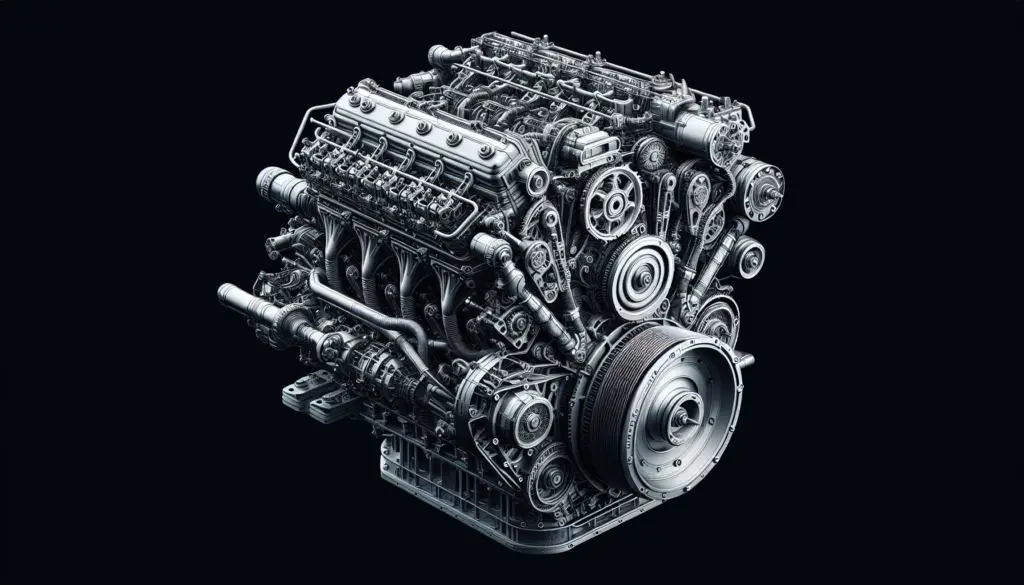
Understanding the Importance of Boat Engine Warranties
When you invest in a boat, you’re not just buying a piece of equipment; you’re buying peace of mind, the freedom to explore, and perhaps even a new lifestyle. However, this significant investment isn’t without its risks. That’s where boat engine warranties come into play, ensuring that your investment is safe, and your aquatic dreams can freely set sail.
The purpose of warranties
The purpose of warranties is straightforward: they serve as a promise or guarantee offered by the manufacturer or dealer, ensuring the boat engine’s performance. This guarantee assures you that if any problems arise due to flaws in materials or workmanship under normal use, they’ll be rectified at no extra cost to you.
How warranties protect boat owners
For boat owners, a warranty offers protection against unanticipated repair costs. Even with the best manufacturing processes, defects and malfunctions can still occur. In such instances, having a warranty in place could potentially save you thousands of dollars in repair or replacement costs.
Cost-benefit analysis of warranty coverage
When considering whether it’s worth investing in a premium boat engine with extensive warranty coverage, it’s vital to conduct a cost-benefit analysis. While you might initially pay more for a boat with a comprehensive warranty, the potential savings in repair costs, added peace of mind, and potential resale value may justify the upfront cost.
Key Elements of Boat Engine Warranties
To fully leverage your boat engine warranty, it’s crucial to understand its key components. These not only dictate what’s covered but also how, when, and under what conditions claims can be made.
Length and terms of coverage
The length and terms of coverage can vary significantly from one warranty to another. Some warranty periods are relatively short, spanning only a few months, while others might last several years. It’s crucial to completely understand these terms, so you’re not caught unaware when you need to make a claim.
Parts and components covered
Some warranties will cover all boat engine parts and components, while others may only cover specific ones. Make sure you thoroughly review this section of your warranty, so it’s clear what parts are included, and which ones might cause a problematic out-of-pocket expense down the line.
Extent of labor coverage
In addition to parts, some warranties also cover the labor costs involved in engine repairs and replacements. However, not all warranties offer such comprehensive coverage, so don’t make assumptions – confirm it within your warranty terms.
Warranty transferability
An additional critical aspect to consider is whether or not the warranty is transferrable, which can significantly enhance a boat’s resale value. A transferrable warranty can be passed on to the next owner if you decide to sell the boat, making it a more attractive purchase prospect.
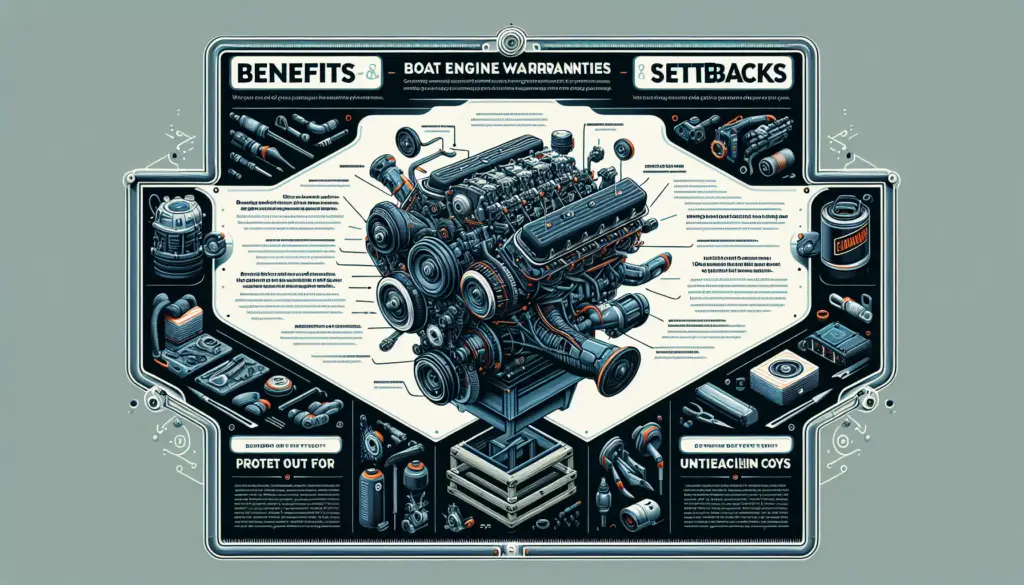
Difference between Manufacturer and Dealer Warranties
As you navigate through the warranty lingo, it’s important to differentiate between manufacturer warranties and dealer warranties. Each has unique coverage, limitations, and benefits.
Understanding manufacturer warranties
Generally, manufacturer warranties are directly linked to the boat engine’s maker. These warranties guarantee against defects in material or workmanship, often covering a broad range of parts and labor costs. Typically, they’re tied to the boat itself, making them transferrable upon resale.
Understanding dealer warranties
Dealer warranties, on the other hand, come from the dealership where you purchased the boat. Dealer warranties can supplement the manufacturer’s warranty, providing wider coverage or extending the warranty period.
Comparing the coverage and limitations
While it’s tempting to assume that all warranties offer the same protections, that’s hardly the case. Different warranties have different limits and exclusions, which is why it’s essential to read the fine print and compare these before committing to a purchase.
Getting to Know the Warranty Registration Process
After understanding your warranty, the next step is to make sure it’s correctly registered. This is pivotal as it’s often a precondition to making a claim.
Step-by-step guide
Each warranty has its own registration process, often involving filling out a warranty card and mailing it to the manufacturer or online registration. Read your warranty documents carefully to understand the specifics of the registration process.
Tips for proper registration
When going through the registration process, ensure that all the information you provide is accurate and complete. Any discrepancies could lead to complications or delays when you want to claim your warranty.
Common mistakes to avoid
One of the common mistakes boat owners often make is forgetting to register their warranty in the first place. Don’t fall into that trap! Make it a priority once you’ve made your purchase. Moreover, don’t lose your warranty documents: keep them in a safe place where you can find them easily.
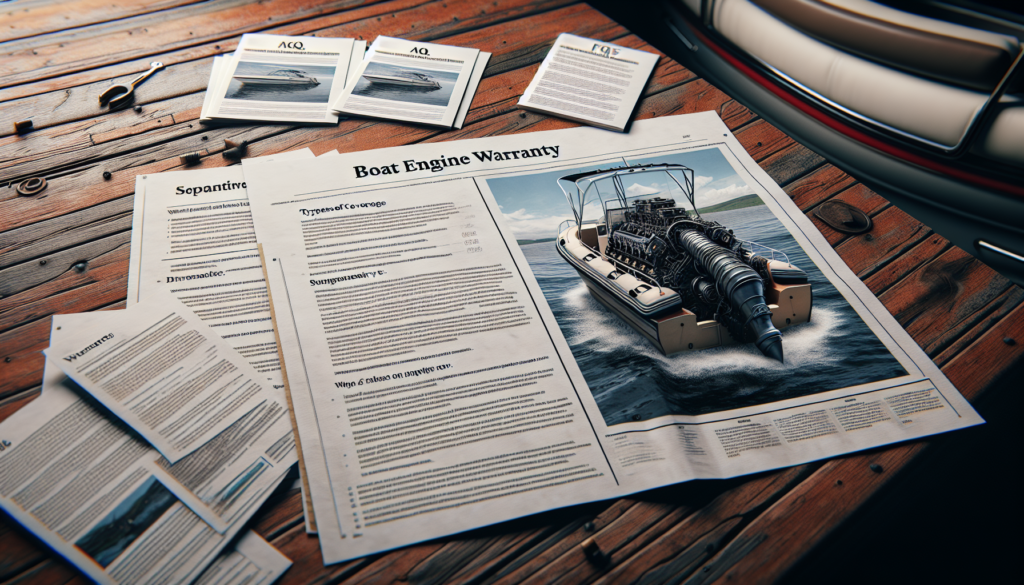
Terms and Conditions to Look Out For
When assessing a warranty, be vigilant about certain terms and conditions that could limit your ability to make a claim.
Normal wear and tear clause
Most warranties don’t cover normal wear and tear. That means they won’t cover the costs of regular maintenance or replacing parts that naturally wear out over time.
Operator error exemption
Many warranties include a clause that exempts coverage for damages or malfunctions resulting from operator error. These can be circumstances where you’ve used the engine incorrectly or did not adhere to the recommended maintenance schedule—such familiarizing yourself with proper engine operation and maintenance is crucial.
Maintenance responsibility clause
Another common warranty term is the maintenance responsibility clause. This clause makes it your responsibility to adequately maintain your boat engine, as failure to do so might void the warranty.
Understanding Extended Warranties and Service Contracts
In addition to standard warranties, you might also come across extended warranties and service contracts.
Benefits of extended warranties
An extended warranty, as the name suggests, prolongs the original warranty’s period. This additional coverage could save you hefty sums in potential repair costs over the long haul.
How service contracts differ from warranties
A service contract, unlike a warranty, is not included in the purchase price. Instead, you pay for a service contract, which generally offers coverages above and beyond that of standard warranties, such as routine maintenance.
When to consider these options
Whether or not to invest in extended warranties or service contracts is a personal decision, based on your peace-of-mind threshold, the value of your boat, and its susceptibility to certain mechanical issues. By carefully weighing these factors, you can make an informed decision.
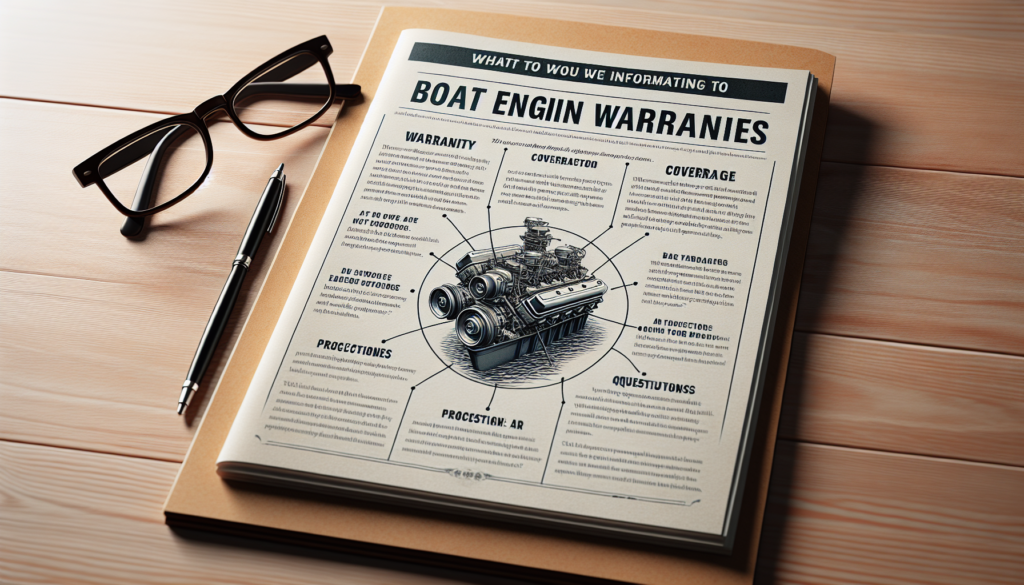
Claiming a Warranty
When the time comes to claim your warranty, understanding the procedure and knowing what documents you’ll need can make the process smoother.
Procedure for filing a claim
Each warranty will have its specific procedure for filing a claim. Generally, you’ll need to contact the provider, describe the issue, and then follow their instructions, which may involve taking the boat to an authorized repair center.
Documents needed for making a claim
Visible proof of purchase, warranty documents, and maintenance records are typically required when making a claim. Therefore, always keep these documents in a secure, easily accessible location.
Dealing with claim denials
There’s always a chance that your warranty claim might be denied, perhaps due to fine print clauses or perceived lack of maintenance. If this happens, don’t be passive. Assertively inquire about the denial reasons and negotiate accordingly. In some cases, you might need legal assistance.
Common Boat Engine Problems Covered by Warranty
While warranties vary, they typically cover certain common boat engine problems.
Manufacturer defects
Any defects due to faulty materials or workmanship are usually covered under most warranties. This coverage means that if your boat engine fails due to manufacturing defects, the warranty will cover the repair costs.
Unexpected breakdowns
Unexpected engine breakdowns that result from defects or mechanical failures might also be covered. However, it’s essential to confirm this as not all warranties include unexpected breakdowns.
Frequently replaced parts
Some components are replaced more frequently than others. Therefore, it’s worthwhile checking to see what common parts are covered under your warranty.
Maintaining your Boat Engine to Uphold Warranty
One critical aspect of a warranty claim is proving that you’ve maintained the boat engine appropriately.
Role of regular maintenance
Maintaining your boat engine safeguards its performance and longevity. More so, it’s often obligatory under warranty terms. Sticking to a regular maintenance schedule proves to warranty providers that breakdowns or malfunctions aren’t due to neglect.
How to document your maintenance
Documenting your maintenance involves keeping a detailed record of all service inspections, tune-ups, and repairs. Keep all related invoices, receipts, and reports. This paper trail will solidify your warranty claim if needed.
Potential consequences of improper maintenance
Failure to keep up with regular maintenance can lead to warranty invalidation. If it’s evident that neglect or poor maintenance has led to the engine’s issue, the manufacturer or dealer has grounds to deny your warranty claim.
Understanding the Legal Aspects of Boat Engine Warranties
Lastly, you’d be wise to grasp the legal aspects of boat engine warranties, especially as they’re governed by federal laws.
Consumer laws applicable to boat warranties
Laws like the Magnuson-Moss Warranty Act provide consumers with certain protections and rights regarding warranties. This act mandates that warranties must be easy to understand and terms must be fulfilled as stated.
Remedies for breach of warranty
If a warranty provider fails to uphold the stipulated terms, you’re entitled to specific remedies, which could include engine repair, replacement, or monetary compensation.
How to seek legal help
In some instances, you may need legal assistance to enforce your warranty rights. This typically happens when there’s a dispute about a warranty claim. If it comes to this, make sure to consult with an attorney specialized in consumer rights or marine law.
To wrap things up, the importance of understanding your boat engine warranty cannot be overstated. Not only does it provide you with peace of mind, but it also guards your significant investment against unexpected and potentially hefty repair costs. Make sure to carefully go through your warranty document, pay specific attention to the details and fine prints, properly maintain your boat engine, and uphold your responsibilities as the boat owner. This understanding will ensure a smooth sailing experience—literally and figuratively.

